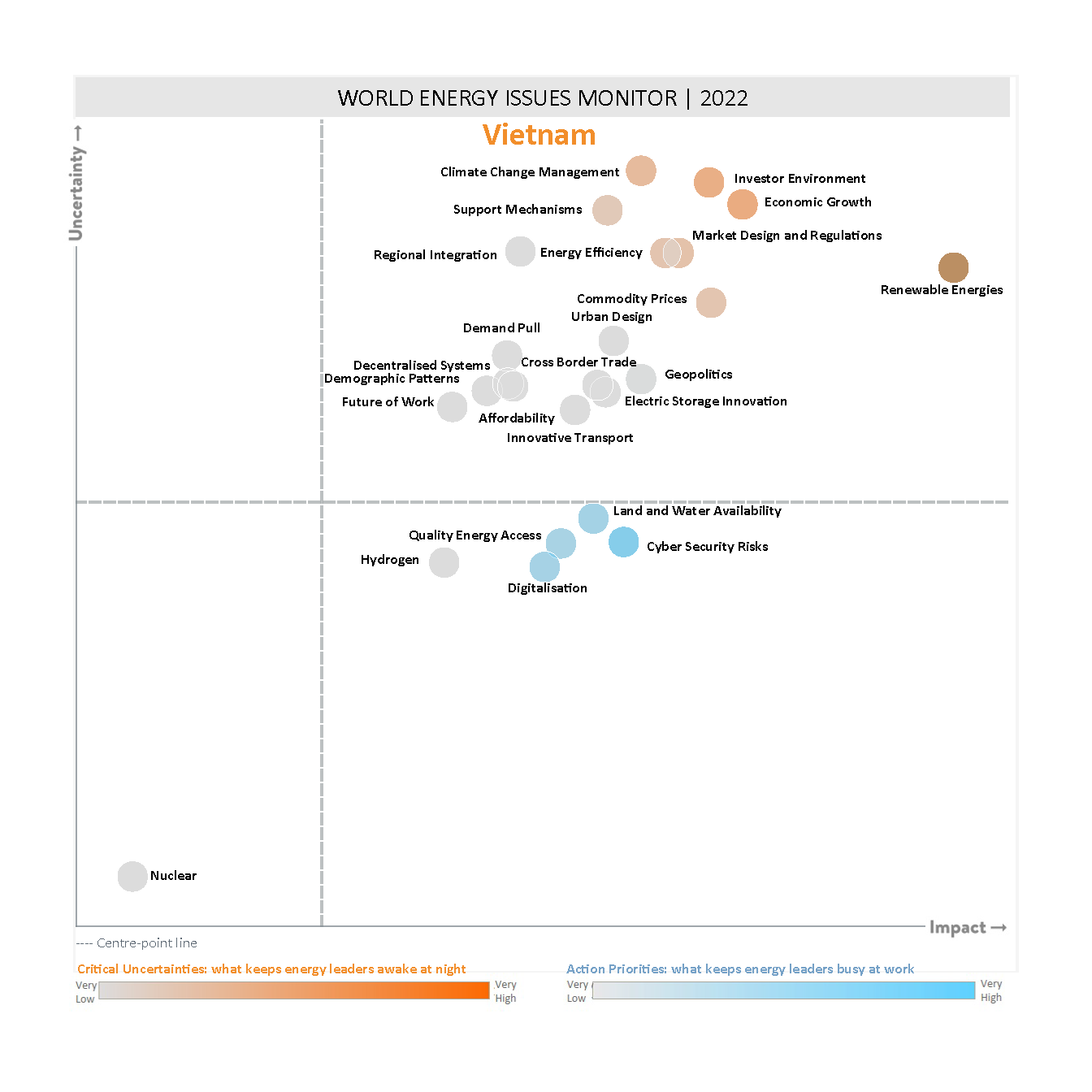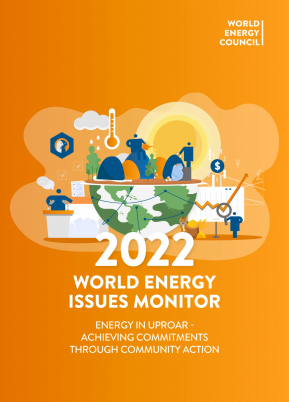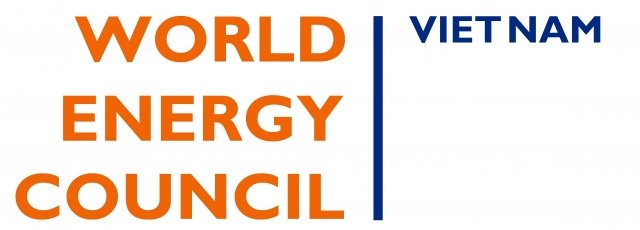The World Energy Council Vietnam (WEC Vietnam) is a multi-sectoral organization of Vietnamese natural persons, experts, corporate, energy centre, research institute, government and academic organizations. WEC Vietnam shares energy information, represents members' views, promotes dialogue and connectivity for members, prepares and disseminates reports, organizes seminars and conferences.
The WEC Vietnam Member Committee brings together high-level players in the energy sector together to forge a better understanding of energy issues towards identifying and implementing sustainable, effective solutions. With the target to “Support Vietnam's economic well-being through the active promotion of the sustainable development and use of energy, both domestically and globally.”
Mrs. TitaThy Nguyen, President of Vietnam Green Energy Network, Since 2014 she has been the Director of the Consulting Center and the Director of the Vietnam Energy Development Support Center of the Vietnam Energy Association. Her experience includes project management, power plant operations, commercial, financial, legal and corporate functions. Prior to starting her career, she worked in the power supply industry in her hometown with 20 years of experience leader and operating an import-export business in the electricity, water and golf equipment industry.
ENERGY IN VIETNAM
Vietnam’s 2021 Issues Monitor map showed a clear correlation between the impact and uncertainty of all issues raised. The top three issues energy leaders highlighted as priorities for 2022 include Digitalisation, Commodity Prices and Climate Change Management. Similarly, Renewable Energy received lots of attention and is listed in both the top 5 critical uncertainties and action priorities, whilst Climate Change Management is considered the number one critical uncertainty for this year.
In recent years, the COVID-19 pandemic has dealt a devastating blow to the community and social activities in Vietnam. Most people are forced to work remotely from home which leads to concern about the future of work. The Vietnamese government quickly implemented policies and arrangements to ease the negative effects of this working style. However, the influence of the pandemic still dealt multiple blows to this developing country which has resulted in fluctuating Commodity Prices. The internet of things (IoT) and Digitalisation are expected as action priorities to solve problems such as CP Raw Material, Blockchains, AI, and Big Data collection. There is also an expectation that a developing country like Vietnam will feel the effects of Digitalisation on their Market Design and Regulation also. It is clear that the country is concentrating on maintaining economic growth and avoiding heavy investment in technical aspects and digital agency, which may affect all things digital throughout the country.
At the 26th Climate Change Conference (COP26) in Glasgow, the Prime Minister of Vietnam, Mr. Pham Minh Chinh, announced their commitment to achieve Net Zero in 2050. As a result, there is increased ambition in Vietnam to reach this goal and creates opportunities for the development of new, clean energy (hydrogen, clean electricity), and renewable energy (wind and solar energy) in Vietnam. Nonetheless, there are still challenges in this ambition to meet net-zero targets. The preparation for the adoption of a circular economy which will encourage the reduction, reuse, recycle, and removal of Carbon Dioxide from energy production value chains, along with the development of new energy as mentioned above, should be a great and suitable strategy to bring the country forward to the new era of clean energy.
TESTING PERSPECTIVES WITH THE WEC VIETNAM MEMBER COMMUNITY
The results of the World Energy Issues Survey were discussed with WEC Vietnam members in February 2022. During the discussion, the key findings regarding Action Priorities and Critical Uncertainties were confirmed and the following three theses were highlighted:
- The development of new energy in Vietnam can only be achieved with the support of both policy and technological advances: with a clear plan to improve the decarbonisation process throughout the country, Vietnam stands a great chance with both advantages and challenges to develop the energy industry (both energy efficiency and energy storage). However, the awareness of the country of the new energy content is limited due to the early state of energy policy, while investments for technological issues is put on hold due to the critical uncertainties mentioned in this report. The utilisation of renewable energy and converting technology to achieve hydrogen energy may be an appropriate solution for Vietnam in the near future.
- Consumer engagement may play a crucial role: as Vietnam is moving forward into a diversified energy state, consumer engagement will be prioritised over the stakeholders. The issues on energy price in the country should be seriously taken into account when seeking for a solution to improve the adoption of renewable electricity. At this very moment, the price for electricity and traditional material such as oils and fossil fuels in Vietnam dominate the energy market. The price for the electricity produced from renewable sources should be quickly decreased and controlled. Therefore, the role of consumer engagement in this aspect of energy in Vietnam should be effectively improved.
- Hydrogen energy will have to wait: due to the unprepared state of the country on both policy and technological issues for the development of new clean energy, the establishment of a facility to produce clean energy with new technology in Vietnam is very limited. The government is well aware of this current status and still urges for more work to address a suitable starting point for the clean energy industry. In that manner, the efforts to raise the awareness of the country to new energy should play a great role in the next few years in Vietnam. This will include both policy issues and technological content of the application of new energy.
Acknowledgements
Vietnam Member Committee
Dr. Thien Khanh Tran
Institute For Circular Economy Development (Iced), Vietnam National University.

Downloads

Vietnam Energy Issues Monitor 2022
Download PDF





_368_520_s_c1_c_c.png)





